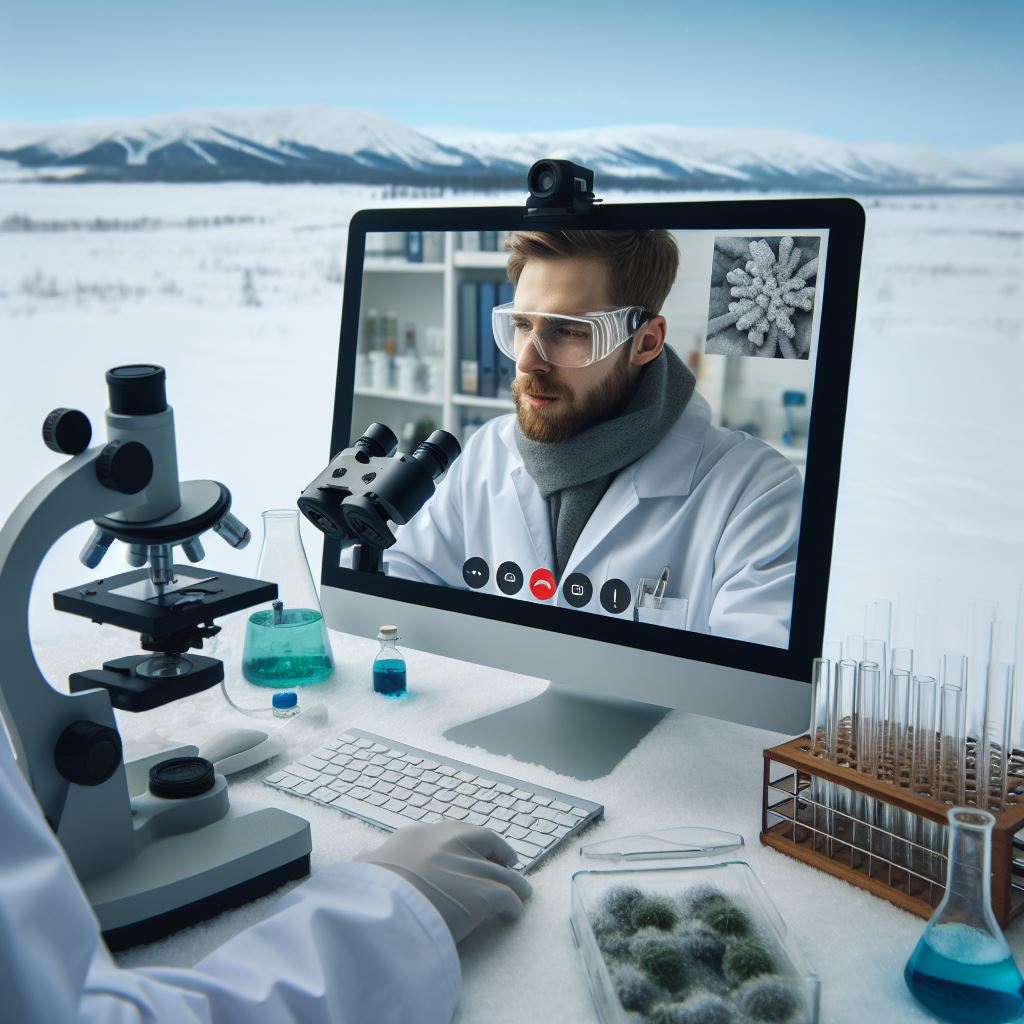Introduction
In the fast-paced world of a lab tech career, achieving work-life balance is crucial.
Definition of work-life balance
Work-life balance refers to the equilibrium between professional responsibilities and personal life.
Importance of work-life balance in a lab tech career
Maintaining work-life balance is vital for lab technicians as it helps prevent burnout and promotes overall well-being.
An active lifestyle outside the lab allows technicians to recharge mentally and physically.
Finding time for hobbies, exercise, and social activities reduces stress and enhances job satisfaction.
Moreover, work-life balance supports stronger relationships with family and friends, fostering a support system.
Challenges faced in achieving work-life balance
Despite its significance, work-life balance can be challenging to attain in a lab tech career.
Strict schedules, demanding workloads, and the necessity for precision can make it difficult to have free time.
Lab technicians often work irregular shifts, including weekends and holidays, which can affect personal obligations.
Stressful situations or urgent lab tasks may require technicians to sacrifice personal time to meet deadlines.
Strategies for achieving work-life balance in a lab tech career
To overcome these challenges, lab technicians can employ various strategies to achieve work-life balance.
Setting clear boundaries between work and personal life is essential to maintain a healthy equilibrium.
Prioritizing self-care, such as regular exercise, adequate sleep, and healthy eating, is crucial.
Utilizing time management techniques, such as prioritizing tasks and delegating when possible, can optimize productivity.
Effective communication with colleagues and supervisors is key to ensuring support for work-life balance efforts.
Regularly scheduling personal time, whether it’s for hobbies, relaxation, or family activities, is essential.
In essence, work-life balance is fundamental for lab technicians to thrive in their careers and personal lives.
By implementing strategies and prioritizing self-care, lab technicians can achieve a fulfilling and balanced lifestyle.
Maintaining work-life balance ultimately leads to enhanced job satisfaction, improved relationships, and overall well-being.
Understanding the Challenges
Yesterday, we explored the topic of “Balancing Work-Life in a Lab Tech Career” and discussed the importance of achieving harmony between personal and professional commitments.
Today, we will delve deeper into understanding the challenges faced by lab technicians in achieving this balance.
The demanding nature of a lab tech career
- Lab technicians are expected to perform a wide range of tasks with great precision and accuracy.
- They may need to analyze samples, prepare solutions, operate lab equipment, and document results.
- The nature of their work requires them to be detail-oriented and follow strict protocols.
- The pressure to consistently deliver accurate results can be overwhelming and mentally exhausting.
- The high-stakes nature of their work adds to the stress, as any errors can have serious consequences.
Long working hours and shift work
- Lab technicians often have to work long hours to meet project deadlines or handle emergency situations.
- Shift work is also a common practice in many laboratories, as round-the-clock operations are necessary.
- This can disrupt their sleep patterns and make it challenging to maintain a consistent work-life routine.
- The irregular work hours may strain relationships and make it difficult to engage in social activities.
Potential impact on health and well-being
- The demanding nature and long working hours of a lab tech career can lead to chronic stress.
- Stress can contribute to various health issues, such as high blood pressure, insomnia, and anxiety.
- Lack of exercise and poor eating habits due to time constraints can further impact their well-being.
- It is crucial for lab technicians to prioritize self-care and make time for relaxation and physical activity.
Balancing personal and professional commitments
- The demanding nature and long working hours of a lab tech career can lead to chronic stress.
- Stress can contribute to various health issues, such as high blood pressure, insomnia, and anxiety.
- Lack of exercise and poor eating habits due to time constraints can further impact their well-being.
- It is crucial for lab technicians to prioritize self-care and make time for relaxation and physical activity.
In fact, lab technicians face unique challenges in balancing their work-life due to the demanding nature of their career, long working hours, potential impact on health and well-being, and the need to balance personal and professional commitments.
Recognizing these challenges is the first step towards finding strategies to achieve a healthy work-life balance.
In the next section, we will discuss practical tips and techniques to effectively manage these challenges and create a fulfilling and harmonious life as a lab technician. Stay tuned!
Read: The Future of Biology Jobs in Canada
Unlock Your Career Potential
Visualize a clear path to success with our tailored Career Consulting service. Personalized insights in just 1-3 days.
Get StartedStrategies for Achieving Work-Life Balance
Setting clear boundaries
In order to achieve work-life balance as a lab tech, it is crucial to set clear boundaries. By establishing specific work hours, you can ensure that your personal time is protected and respected.
Make it known to your colleagues and supervisors when you are available for work and when you are not.
Communicate these boundaries effectively so that everyone is aware of your availability.
Additionally, it is important to avoid work-related activities during your personal time. This means resisting the urge to check emails or work on projects outside of your designated work hours.
By doing so, you create a separation between your work and personal life, giving yourself the time and space to unwind, relax, and recharge.
Prioritizing time and tasks
To maintain a healthy work-life balance, it is essential to prioritize your time and tasks effectively.
Start by determining the most important tasks that need to be completed and focus your energy on those.
By identifying the most critical responsibilities, you can ensure that you are making progress on the most essential aspects of your work while still leaving time for personal activities.
Additionally, it is crucial to eliminate non-essential activities. Identify tasks or commitments that do not contribute significantly to your work or personal life and eliminate them from your schedule.
By freeing up time and mental energy, you create space for activities that truly matter.
Allocating time for personal activities and leisure
One of the key components of achieving work-life balance is allocating time for personal activities and leisure.
Incorporate hobbies and interests into your schedule to ensure that you have time to pursue activities that bring you joy and fulfillment outside of work.
Whether it’s playing a musical instrument, painting, or engaging in a sport, dedicating time to your passions is essential for overall well-being.
Moreover, maintaining a social life is crucial for a well-rounded work-life balance. Make time for friends, family, and social gatherings.
Engaging in meaningful connections and building relationships outside of work can help alleviate stress and bring a sense of fulfillment.
Taking care of physical and mental well-being
In order to sustain a healthy work-life balance, it is vital to prioritize your physical and mental well-being. Incorporate regular exercise into your routine and prioritize healthy eating habits.
Physical activity not only improves your physical health but also boosts your mental well-being, reduces stress, and increases energy levels.
Equally important, ensure you allocate time for adequate rest and relaxation.
Maintain consistent sleep patterns and make time for activities that promote relaxation, such as meditation or reading.
Taking care of your mental well-being is crucial for overall happiness and success in both your personal and professional life.
By implementing these strategies and prioritizing work-life balance, lab techs can pave the way for a fulfilling and sustainable career.
Remember, achieving work-life balance is an ongoing process that requires conscious effort and adaptability.
By setting boundaries, prioritizing tasks, allocating time for personal activities and well-being, lab techs can thrive both in and out of the lab.
Read: Career Paths: From Biologist to Biochemist

Find Out More: Ethical Considerations for Research Analysts
Utilizing Support Systems
When working in a laboratory technician career, it is crucial to balance work and personal life. To achieve this balance, it is essential to utilize various support systems.
Seeking help from colleagues
A major support system that can be beneficial is seeking help from colleagues.
Lab technicians often work in teams, and reaching out to colleagues for assistance with workload or specific tasks can reduce stress and help maintain a healthy work-life balance.
Communicating with supervisors about workload
Another effective support system is communicating with supervisors about workload.
Openly discussing the workload and any challenges that may arise can lead to adjustments or solutions that prevent overwhelming situations and allow for a better work-life balance.
Utilizing employee assistance programs
Employee assistance programs (EAPs) are vital tools in maintaining a healthy work-life balance.
EAPs provide access to resources such as counseling, financial advice, and assistance with personal issues.
Taking advantage of these programs can alleviate stress and ensure overall well-being.
Engaging in networking and professional organizations
Engaging in networking and professional organizations is another way to find support in a lab tech career.
These organizations provide opportunities for connecting with professionals in the field, sharing experiences, and learning strategies for achieving work-life balance.
Through these support systems, lab technicians can effectively manage their work-life balance and avoid burnout.
Seeking help from colleagues, communicating with supervisors, utilizing employee assistance programs, and engaging in networking opportunities all contribute to a healthier and happier professional life.
Seeking help from colleagues allows lab technicians to share the workload and avoid excessive stress.
By working together, lab techs can accomplish tasks efficiently and have time for personal life.
Communicating with supervisors is crucial as they can help distribute the workload more evenly.
By expressing concerns about excessive workload, supervisors can make adjustments that promote a healthier work-life balance for lab technicians.
Employee assistance programs provide professional help for personal issues that may affect work performance and overall well-being.
Utilizing these programs can address problems early and prevent them from affecting work-life balance.
Engaging in networking and professional organizations exposes lab technicians to a support system of like-minded professionals.
Sharing experiences and learning from others helps in finding solutions and strategies for managing work and personal life.
Essentially, balancing work and personal life in a lab tech career is crucial for overall well-being.
Utilizing support systems such as seeking help from colleagues, communicating with supervisors, utilizing employee assistance programs, and engaging in networking opportunities all contribute to achieving a healthier and more fulfilling work-life balance.
Read: Canadian Biologists and Climate Change Research
Overcoming Common Work-Life Imbalance Issues
Finding a balance between work and personal life can be challenging. However, by addressing common work-life imbalance issues, you can overcome them and lead a more fulfilling life.
Dealing with feelings of guilt or burnout
One common issue is dealing with feelings of guilt or burnout. It’s essential to recognize that prioritizing personal life is normal and necessary for overall well-being.
Taking breaks, engaging in hobbies, and spending quality time with loved ones can help alleviate these feelings.
Make sure to practice self-care activities like exercise, relaxation techniques, and getting enough sleep.
Additionally, talking to a trusted mentor, colleague, or counselor about your feelings can provide valuable support.
Handling work-related stress
Another issue in lab tech careers is work-related stress. To handle this, start by identifying the main sources of stress in your job and finding ways to minimize them.
Effective time management techniques can improve productivity and reduce stress. Practicing deep breathing exercises or meditation in stressful situations can help manage stress in the moment.
Building a support system through coworkers or support groups can also provide a valuable outlet.
Addressing conflicts between personal and professional commitments
Conflicts between personal and professional commitments are another challenge. Understanding your priorities and setting boundaries is crucial in finding a balance.
Learn to say no when necessary to protect your personal time. Communication with your supervisor or team about personal commitments can help them understand your needs.
If possible, explore flexible work options that can accommodate personal responsibilities. Integration of personal and professional activities, such as exercising during lunch breaks, can also be helpful.
In general, balancing work and personal life requires effort and conscious decision-making.
By addressing feelings of guilt or burnout, handling work-related stress, and addressing conflicts between personal and professional commitments, it is possible to achieve a better work-life balance.
Prioritizing self-care and open communication can lead to a fulfilling lab tech career. Remember, finding a balance is a lifelong journey, so be patient with yourself and seek support when needed.
Read: Internship Opportunities for Biologists in Canada
Find Out More: Finding Mentors in the Canadian Analyst Sector
Conclusion
Maintaining a work-life balance in a lab tech career is crucial, as it promotes overall well-being and job satisfaction.
In the demanding field of laboratory technology, balancing work commitments with personal life helps prevent burnout, enhances productivity, and fosters a healthier mindset.
It allows professionals to recharge, reducing stress and improving focus during work hours.
Additionally, a balanced lifestyle supports long-term career sustainability by preventing fatigue-related errors and preserving mental and physical health.
Prioritizing work-life balance ensures lab technicians can sustain high performance levels, adapt to challenges effectively, and enjoy a fulfilling and sustainable career in the dynamic field of laboratory science.
It is important to implement strategies that can help achieve this balance.
Prioritize your well-being by implementing work-life balance strategies. Designate specific times for work and personal activities to maintain a healthy separation.
Learn to say no when necessary, setting realistic boundaries to prevent burnout. Embrace breaks and downtime as essential for productivity and creativity.
Foster open communication with colleagues and superiors about your boundaries. Invest time in activities that bring joy and relaxation to recharge your energy.
Remember, a balanced life not only enhances your overall happiness but also boosts your professional effectiveness.
Strive for equilibrium, and you’ll discover increased fulfillment in both your personal and professional spheres.
Remember, your well-being and happiness should always be a priority.




